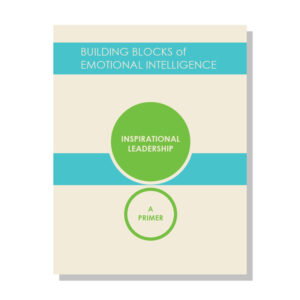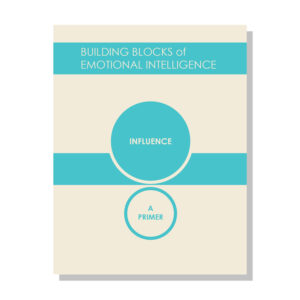

Take Smarter Risks with Emotional Intelligence
June 20, 2018 Time to read: 4 min.Whether you want to become a more effective leader, advance your career, or achieve goals in other parts of your life, the ability to take smart risks is essential to productive growth. A range of Emotional Intelligence competencies can help achieve goals and bring our ideas to life.
What Does It Mean to Take Smart Risks?
People who take smart risks are highly attuned to their own abilities and limitations. They set goals that are challenging, yet attainable. They communicate their message in a compelling way, which people they want to influence can engage with. While some of their choices may appear highly risky to others, they are confident that the potential benefits will be worth it.
People who take smart risks excel across a range of the twelve Emotional & Social Intelligence Leadership Competencies. Some of the competencies most essential to taking smart risks include Emotional Self-Awareness, Achievement Orientation, Influence, and Inspirational Leadership.
How to Develop Emotional Self-Awareness
As the foundation of the Emotional and Social Intelligence competencies, Emotional Self-Awareness is essential to taking smart risks. People who are emotionally self-aware have an accurate knowledge of their strengths and weaknesses, as well as a solid understanding of what they can realistically achieve. Leaders with Emotional Self-Awareness can be present with people in a candid and authentic way, enabling them to speak with conviction about their vision.
Developing Emotional Self-Awareness begins with self-reflection, including recognizing how your emotions impact you and your job performance. It can be helpful to ask for feedback from people with whom you regularly interact. Simple questions, such as asking others what they see as your strengths and weaknesses, can be critical in recognizing a disparity between how you see yourself and how others see you. Ideally, this feedback would be anonymous, so that people feel comfortable being honest. Either way, be prepared to accept feedback with an open mind and the intention to take steps toward improvement where necessary.
If you find it difficult to recognize the areas where you struggle, or if you discover through feedback self-other gaps you aren’t sure how to improve, you may benefit from the guidance of a coach. A coach can help you develop a plan of action for improvement and give you feedback along the way. Coaching for Emotional Intelligence is particularly critical if you struggle with Emotional Self-Awareness, as it lies at the heart of EI.
How to Develop Achievement Orientation
Achievement Orientation is vital to taking smart risks and effectively setting goals. People with strengths in this competency set challenging goals for themselves, yet remain realistic in what they can achieve. As too much of a focus on Achievement Orientation can become toxic, particularly for leaders, it is also important to balance it with other competencies, including Inspirational Leadership, Empathy, and Teamwork.
A meta-analysis of research at Cornell demonstrates that highly successful entrepreneurs possess an elevated drive to achieve. In “Achievement Orientation: An Introduction,” Daniel Goleman writes:
“These entrepreneurs take smart risks. They’re sure the risk is minimal, though to others it may seem like a very high risk and that it is unlikely they’ll reach that goal.”
As with Emotional Self-Awareness, it is important to continually seek and learn from feedback to improve performance in Achievement Orientation. Cultivating a clear picture of positive goals and knowing what you can realistically accomplish are simple steps you can take to begin improving your performance. Working with a coach can also help to explore a vision of your ideal self and develop steps to reach your goals.
How to Develop Influence
As part of an organization, influence is key to bringing your great ideas to life. People with strengths in the Influence competency establish trust through a respect for and sensitivity to office culture (which also incorporates the Organizational Awareness competency). They know how to communicate their message in a way that appeals to others, particularly the key people they want to influence.
If you want to develop influence within an organization, it is important to start small. Begin by sharing your ideas informally, with people that you trust. Pay attention to their concerns and feedback and incorporate them into your vision. It is also critical that you understand what matters to the people you want to influence. By understanding their perspective, you can create a compelling case for your idea that will be beneficial to key people. This will enable you to start an engaging conversation, in which all sides feel invested.
How to Develop Inspirational Leadership
Inspirational Leadership, particularly the ability to articulate a shared vision, is central to taking smart risks. Inspirational leaders understand the vision of their organization inside and out. This enables them to craft ideas that fits seamlessly into the bigger picture. They also use the organization’s mission to create a sense of common purpose, yielding resonant relationships with others that are essential to identifying shared aspirations.
Becoming an inspirational leader is a gradual and ongoing process; as in any relationship, building trust doesn’t happen overnight. Inspiration also requires a degree of vulnerability. Leaders that share some of their apprehensions and fears related to work and leadership cultivate an atmosphere of authenticity, yielding a solid foundation of trust.
You can work to develop Inspirational Leadership on a daily basis by attuning yourself to what people care about. Identify the beliefs and aspirations you share and make an effort to articulate this common purpose. In this way, the ability to inspire can become a critical asset in building commitment and enthusiasm for a new business venture, or developing an idea that perfectly aligns with your organization’s mission. For further reading on Inspirational Leadership, we recommend Ann Flanagan Petry’s article “How Leaders and Coaches Cultivate Purpose at Work.”
Utilizing these Competencies to Take Smarter Risks
By developing Emotional Intelligence competencies that span the four domains, you will have the skills to transform your ideas and goals into reality. A foundation of Self-Awareness allows us to understand our strengths and weaknesses and solidify our values. Paired with Achievement Orientation, under the Self-Management domain, we can develop ambitious yet attainable goals. The Social Awareness and Relationship Management domains enable us to garner support for these goals. While Organizational Awareness and Influence help us recognize and utilize networking opportunities and key power relationships, Inspirational Leadership ensures that our initial support doesn’t fade.







